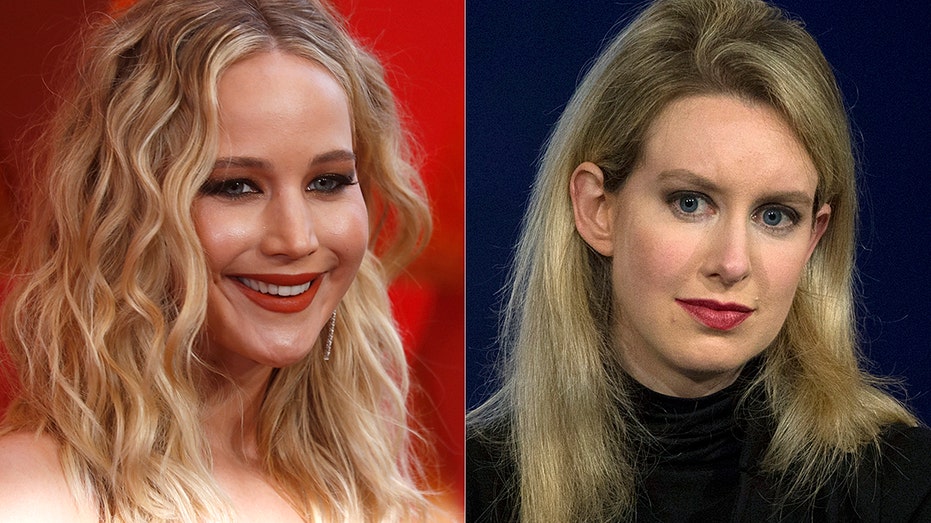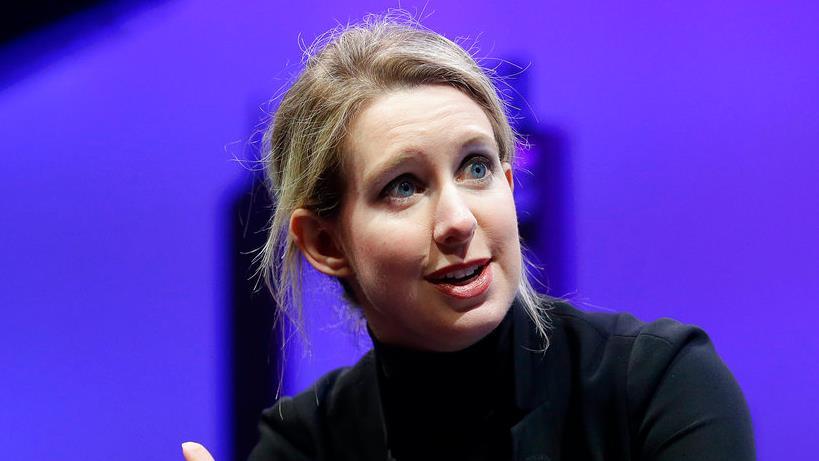Theranos founder Elizabeth Holmes in court; anatomy of a fraud
Elizabeth Holmes, founder of now-defunct tech startup Theranos, appeared in federal court in California on Monday, for a status hearing, where her lawyers were able to delay setting a trial date.
Citing the need for more time to review evidence, a decision on a potential start date for a trial was pushed off until July.
Holmes has been charged with felony conspiracy and fraud, after allegedly misleading patients, health care professionals and investors about the blood-testing technology being developed by Theranos.
Prosecutors on Monday did not say whether they would bring more charges.
Holmes, and former Theranos president Sunny Balwani, whom Holmes also dated, were indicted by a grand jury in June. Balwani appeared in court alongside Holmes on Monday.
Once one of Silicon Valley’s most promising startups, Theranos descended into chaos over 15 years. Here’s an inside look at what happened:
2003
Theranos is founded in 2003 as a privately held health care technology company in Silicon Valley by Holmes. Her mission is to develop a technology that will allow comprehensive blood testing and analysis with a small amount of blood obtained from a prick of a finger.
2006
Holmes is profiled by Inc. in a 30 under 30 feature.
2013
Theranos and Walgreens announce a “long-term partnership to bring Theranos’ new lab testing service to Walgreens stores nationwide.”
Theranos Wellness Centers open at Walgreens locations. The number of Wellness Centers eventually climbs to 42.
2014
Theranos claims that its blood analyzer was used by the Defense Department on the battlefield in Afghanistan and generated $100 million in revenue for the company that year. The SEC found in 2018 that the government did not use Theranos’ technology and that revenue in 2014 barely surpassed $100,000.
2015
From 2003 through 2015, Theranos raises nearly $900 million from investors, according to The Wall Street Journal, which valued the company at more than $9 billion.
The Journal reports that Theranos' technology is not working as expected and the company is using third-party machines to test its blood samples. It also says health regulators are investigating complaints about the company’s lab and research practices, brought by two former employees.
A deal with grocer Safeway falls by the wayside.
2016
May: Balwani resigns.
June: Walgreens pulls out of its partnership with Theranos.
July: The Centers for Medicare & Medicaid Services (CMS) bans Holmes from operating a lab for at least two years. The order is issued after an inspection reveals safety hazards at one of its California labs.
October: Theranos says it will shut down its labs and wellness centers in a shift away from operating clinics to focus on selling to providers.
November: Walgreens sues Theranos for $140 million, alleging breach of contract. The pharmaceutical giant claims it was misled by Theranos about the capabilities of its blood-testing technology at the time the deal was struck.
The company has less than $200 million at the end of 2016, according to a report by The Journal, which is less than 25 percent of the amount of cash it had initially raised from investors. The company acknowledges that it didn’t generate any revenue in 2015 or 2016.
2018
Theranos, company founder Elizabeth Holmes and former president Ramesh “Sunny” Balwani agree to a settlement with the SEC, which alleges that they committed a “massive fraud” in lying about one of the company’s key products.
In addition, Holmes is stripped of control of the company and is barred from serving as an officer or director at any public company for the next decade, according to the SEC. She is forced to return to investors 18.9 million shares, which the SEC says were obtained through fraud, and pay a $500,000 penalty.
Holmes and Balwani are charged with raising more than $700 million from investors through a fraudulent scheme that took place over the course of years. The SEC accuses them of making misleading statements during investor presentations and product demonstrations about a machine that can test and process small samples of blood.

Hollywood jumps on board. In May 2018, following the SEC news, publisher Alfred A. Knopf fast-tracked the release of "Bad Blood: Secrets and Lies in a Silicon Valley Startup," which was written by Pulitzer Prize-winning journalist John Carreyrou, who at The Wall Street Journal first raised questions about the company's blood-testing technology. Carreyrou interviewed more than 150 people, including dozens of former Theranos employees.
The book, which chronicles the downfall of the health care company, is set to be turned into a movie starring Jennifer Lawrence, as first reported in Deadline. The movie, based on Carreyrou’s book, will be produced by Legendary, the studio behind such films as “Interstellar,” “The Dark Knight Rises,” “300” and “The Hangover.”
2019
Holmes files a motion in federal court to force prosecutors to turn over communications between the Journal reporter and government agencies.
Holmes and Balwani appear in court in San Jose, California. Their lawyers successfully convince the judge to delay setting a potential trial date.
*The original version of the story from 3/15/18 was updated on 4/23/19.




















